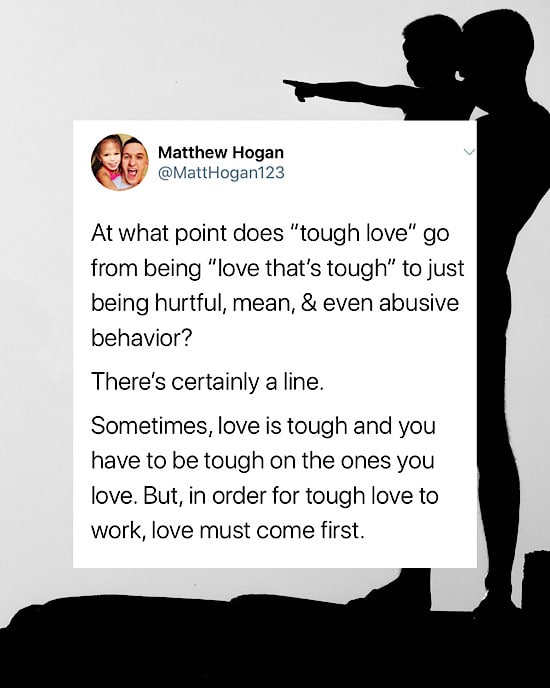“I believe in tough love. But for tough love to work, love must come first. We must love tough to bring out the best in those who lead.”
Jon Gordon
Beyond the Quote (106/365)
At what point does “tough love” go from being “love that’s tough” to just being hurtful, mean, and even abusive behavior? It’s an important distinction to make because there is certainly a line between being tough out of love and being tough because of harbored inner hate—or lack of control.
In my estimation, I think Jon has it right in the quote above. In order for tough love to work, love must come first. The intention behind the action has to be mindfully channeled through love and has to be conscious and deliberate. When tough actions are taken without the mind, they are usually emotionally charged, disproportionately harsh, and later regretted. Then, after it’s all said and done, those actions are guised behind “tough love” and proper responsibility isn’t always taken.
Let’s take a look at how a plant might grow. Do you think “being hard” on a seedling will help it grow? Do you think by giving the seed more rough soil, less water, and less sun, the plant will grow to become more strong? Well, not as strong as it would grow if you soften the soil that the plant grows up in, watered the seed just enough, and gave it plenty of sunshine. This is pretty straightforward. On the other end of the spectrum, however, smothering the seedling with too much care doesn’t multiply the plants growth potential, either. Instead, there’s a point at which your efforts become counterproductive. If you pack the seedling under too much soil, water it too much, and magnify its exposure to the sun—the plant’s growth will undoubtedly be hindered and it might even die.
What’s also important to mention is that the amount of “tough” and “care” that’s given should be relative to the maturity of the plant. When a plant is just a seedling, it needs to be cared for carefully and very delicately—with little to no toughness at all. As the plant matures, you would still want to maintain its environment in an optimal way, as pointed out above, but other natural factors might come into play that slowly start to “toughen” the plant up. Weather that is proportionate to what the plant can withstand, such as rain and wind, will strengthen its stem and cause for the plant to deepen its roots. This type of toughness, that doesn’t destroy the plant, may stimulate ideal growth as it continues to mature.
How much different is our growth as humans? We may not need to be planted in soil, watered, and exposed to the sun per se. But we certainly need similar environmental factors in order for our growth to be optimized. We need nutrient dense foods and enriching sources of new information (soil). We need to stay properly hydrated (water). And we need to feel the warmth of love from the people who care for us that we can also learn how to harbor from within ourselves (sun). Too much or too little of any of those factors and we are exposed to risk.
What we end up with, when you see how this is all laid out is a classic “Goldilocks” situation. What’s the right amount of “tough?” Well, somewhere in the middle. Not all “toughness” is created equal and it’s important that too much “toughness” gets called out for what it is—abuse. But, not enough toughness, as we saw above, can be counterproductive as well. What we need to do—not only for our loved ones, but ourselves—is learn how to find that middle ground where we’re putting love before tough in a way that’s just right for each situation. Don’t let “tough love” become a scape goat for shaking responsibility, avoiding thought, and justifying abusive behavior. And on the other hand, don’t let the idea of “tough love” scare you from being tough at all.
Take the time that’s necessary to find your “just right.” This will require mindful reflection, trial-and-error, clear guidelines, clear consequences, and a strong will to see it through—even when (especially when) there are storms. But it will be worth it. Not just for you and how you feel and act, but for the next generation who’s looking to us for guidance. Let’s prepare ourselves for them. So that they will be prepared for what comes after us.
Don't Let the Motivation Stop There...!
Join our newsletter and get the BEST of what we post every week. Here's an example. Like? Sign up.
[amp-optin id=42297]